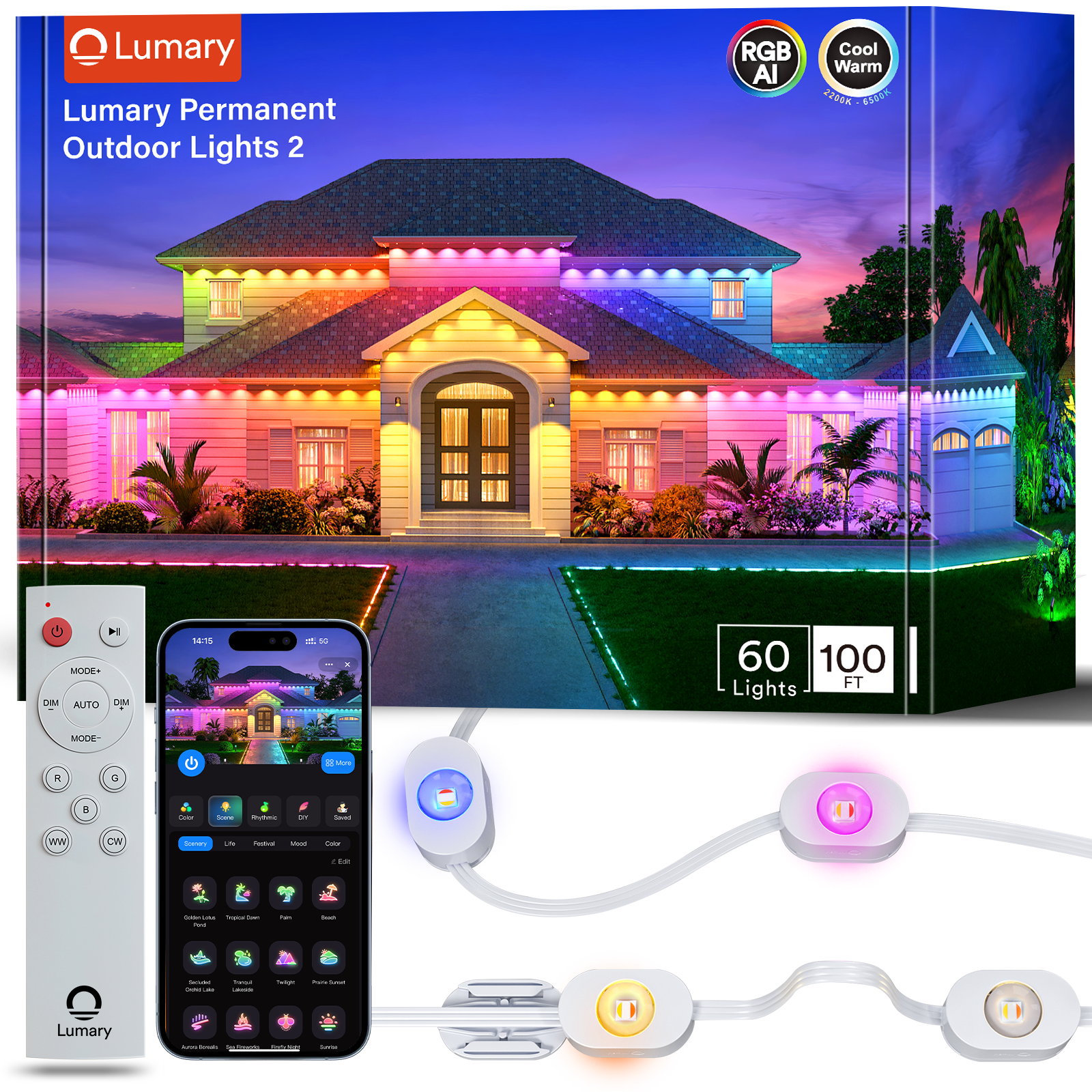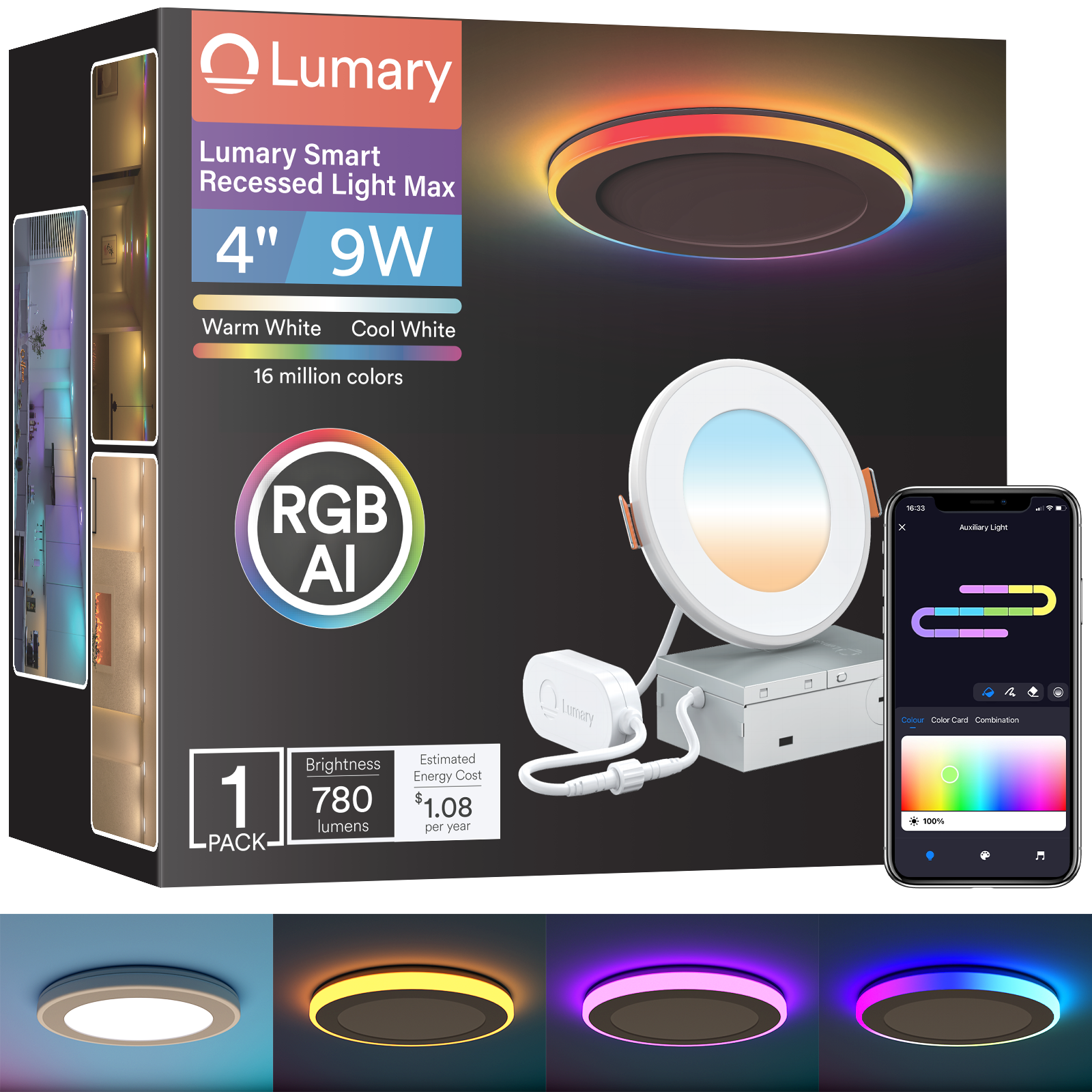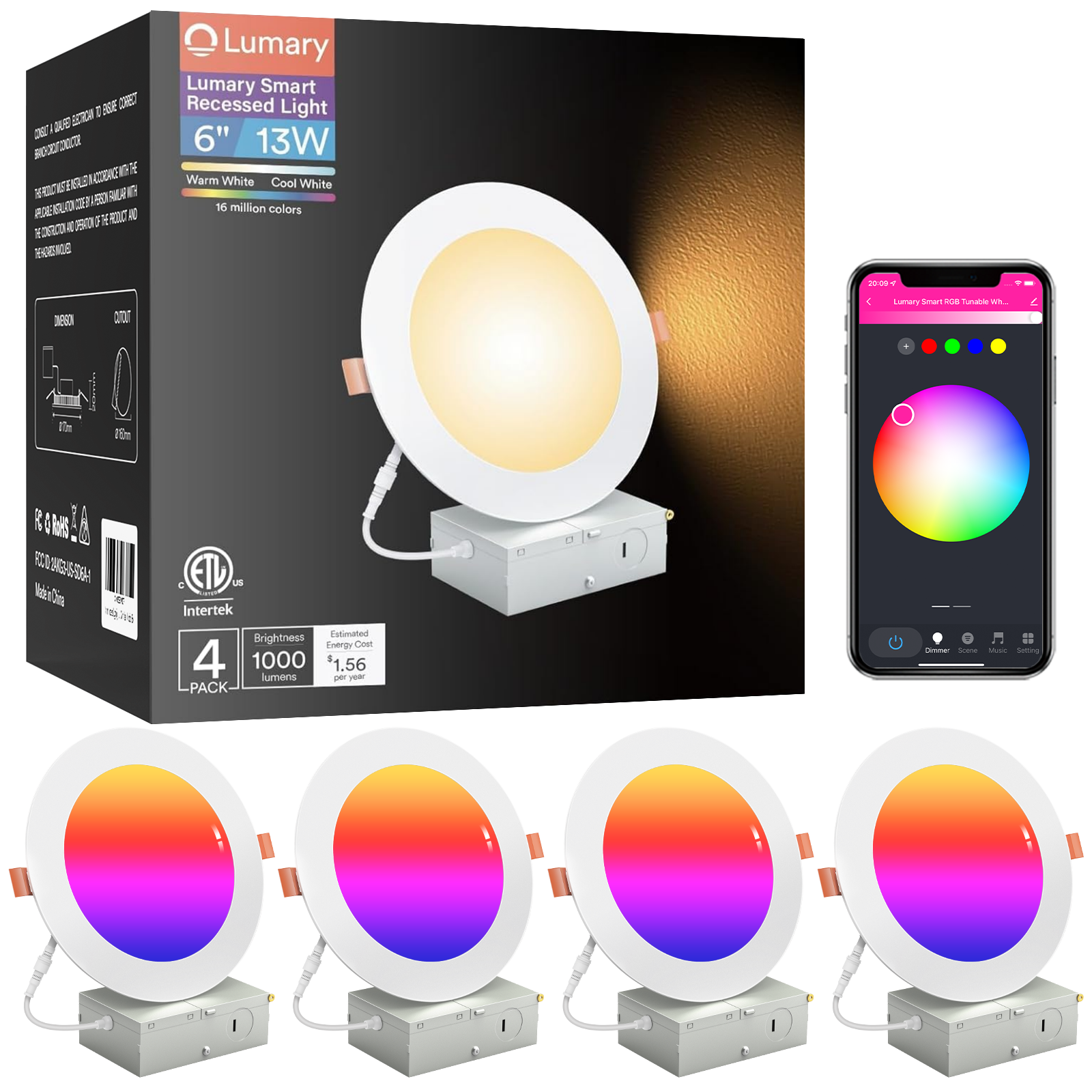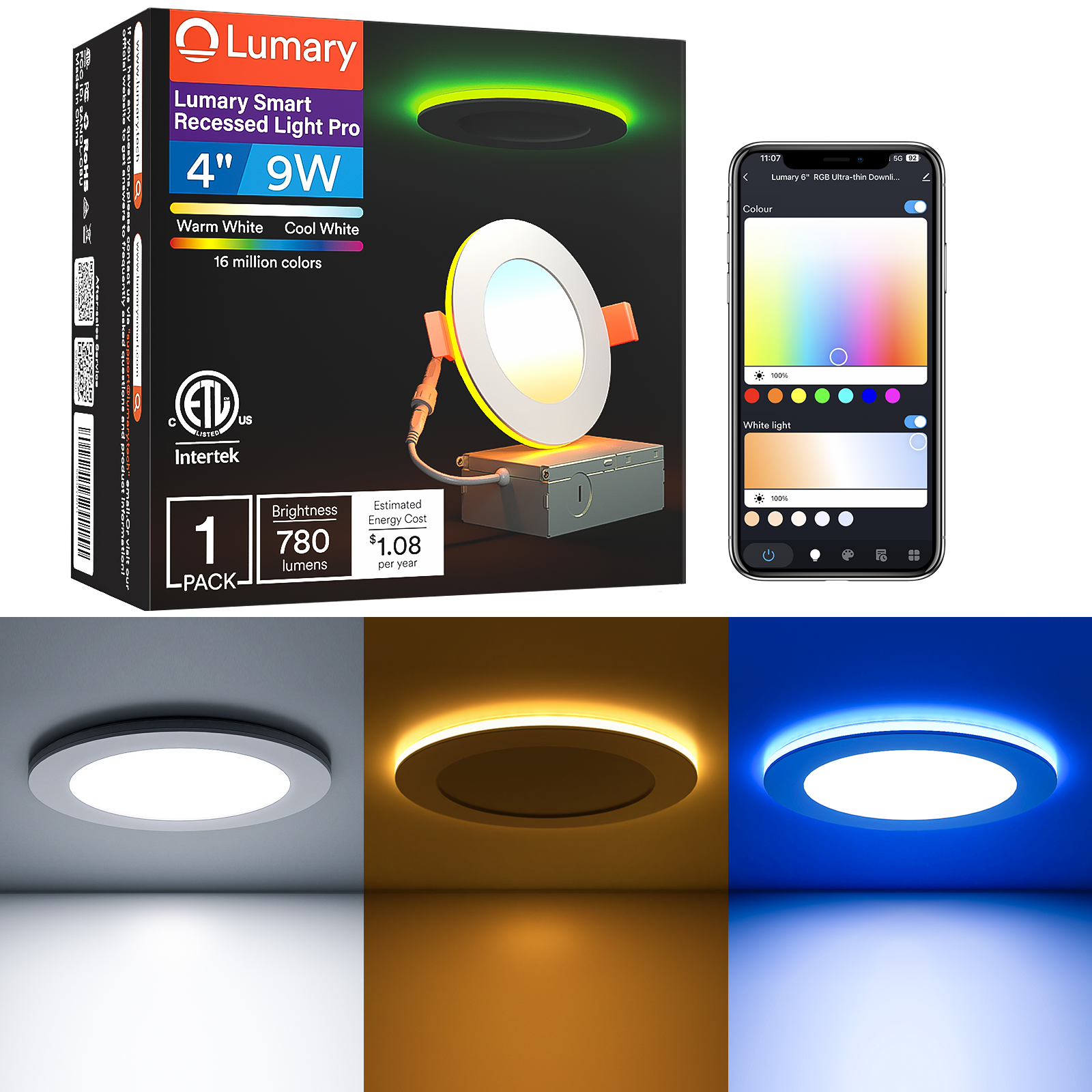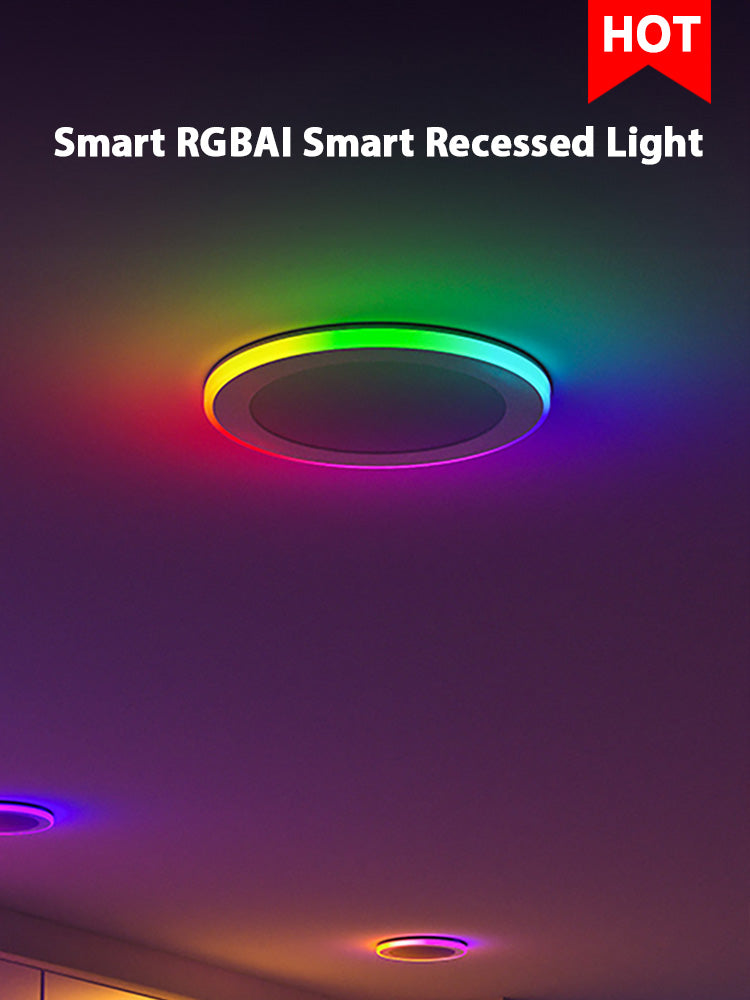Imagine transforming your home lighting with just a tap on your smartphone. Smart home lighting makes this possible, offering you convenience and energy efficiency. By using LED smart bulbs, you can enjoy lights that last up to 50,000 hours and save energy compared to traditional bulbs. Managing your lights becomes effortless when you control lights with phone. This not only enhances your daily life but also contributes to a greener planet. Dive into the world of smart lighting and see how it can brighten your home and simplify your routine.
Understanding Smart Home Lighting

Smart home lighting is more than just a trend; it's a revolution in how you illuminate your living spaces. By using technology, you can control lights with your phone, making your home more efficient and adaptable to your needs.
What is Smart Home Lighting?
Definition and Features
Smart home lighting refers to lighting systems that you can control remotely using a smartphone or other smart devices. These systems often include features like dimming, color adjustment, and scheduling. Imagine setting the perfect mood for a movie night or brightening up your workspace with just a few taps on your phone. Smart lighting systems offer these capabilities and more, allowing you to tailor your lighting to any situation.
Benefits of Smart Lighting Systems
Smart lighting systems bring numerous benefits to your home. First, they enhance convenience by allowing you to control lights with your phone from anywhere. Whether you're at home or away, you can adjust your lighting to suit your needs. Second, they contribute to energy efficiency. By scheduling lights to turn off when not needed or dimming them to save power, you can reduce your energy consumption. Lastly, smart lighting can improve your well-being by creating a pleasant atmosphere that boosts productivity and relaxation.
Types of Smart Lighting Systems
When it comes to smart lighting, you have several options to choose from. Each type offers unique features and benefits, so you can find the perfect fit for your home.
Wi-Fi Enabled Systems
Wi-Fi enabled systems connect to your home network, allowing you to control lights with your phone through an app. These systems are popular because they offer a wide range of features, including remote access and integration with other smart home devices. You can easily set schedules, adjust brightness, and even change colors to match your mood.
Bluetooth Enabled Systems
Bluetooth enabled systems provide a straightforward way to control lights with phone without needing a hub. These systems are ideal for smaller setups or when you want a simple solution. With Bluetooth, you can manage your lighting directly from your smartphone, making it easy to adjust settings as you move from room to room.
Zigbee and Z-Wave Systems
Zigbee and Z-Wave systems use specialized wireless protocols to connect your smart lights. These systems often require a hub but offer robust connectivity and reliability. They are perfect for larger homes or setups with multiple smart devices. With Zigbee and Z-Wave, you can create a seamless smart home experience, controlling lights with your phone and integrating them with other smart technologies.
By understanding these different types of smart lighting systems, you can make an informed decision about which one best suits your needs. Whether you prefer the versatility of Wi-Fi, the simplicity of Bluetooth, or the reliability of Zigbee and Z-Wave, smart lighting offers a world of possibilities to enhance your home.
Necessary Components for Smartphone-Controlled Lighting
To manage your home lighting with a smartphone, you'll need a few essential components. These include smart bulbs and fixtures, smart plugs and switches, and smartphone apps. Let's explore each of these elements to see how they contribute to a seamless smart lighting experience.
Smart Bulbs and Fixtures
Smart bulbs and fixtures form the backbone of any smart lighting system. They offer flexibility and control that traditional lighting cannot match.
LED Smart Bulbs
LED smart bulbs are a popular choice for those looking to upgrade their home lighting. These bulbs allow you to control lighting remotely, minimizing unnecessary light and energy usage. You can adjust brightness, change colors, and even schedule when the lights turn on or off. This feature is perfect for creating different scenes or moods in your home. Imagine setting a warm, cozy atmosphere for a movie night or a bright, energizing environment for work.
Smart Light Strips
Smart light strips add a touch of creativity to your lighting setup. You can place them under cabinets, behind TVs, or along staircases to create stunning visual effects. Like smart bulbs, these strips offer remote control and scheduling features. You can easily change colors and brightness to match your mood or occasion. With smart light strips, your home becomes a canvas for your lighting creativity.
Smart Plugs and Switches
Smart plugs and switches provide additional control over your lighting, especially for lamps and fixtures that aren't inherently smart.
Smart Plugs for Lamps
Smart plugs are adaptors that plug into existing wall outlets. They let you control lamps and other devices via a smartphone app. Even if a lamp isn't "smart," a smart plug can make it so. You can turn lamps on or off remotely, making it easy to manage lighting throughout your home. This feature is particularly useful for floor lamps or table lamps that are plugged in rather than hardwired.
Smart Wall Switches
Smart wall switches replace traditional light switches, offering both physical and smartphone control. These switches allow you to manage your home's lighting from anywhere. You can turn lights on or off, adjust brightness, and even set schedules. Smart wall switches integrate seamlessly with your existing lighting system, providing a convenient way to enhance your home's functionality.
Smartphone Apps
Smartphone apps are the control centers for your smart lighting system. They connect your devices and allow you to manage them with ease.
Popular Apps for iOS
For iOS users, several apps offer robust control over smart lighting. Apps like Philips Hue, LIFX, and Apple HomeKit provide intuitive interfaces and a wide range of features. You can customize lighting scenes, set schedules, and even control lights with voice commands through Siri.
Popular Apps for Android
Android users also have access to a variety of smart lighting apps. Popular options include Google Home, SmartThings, and TP-Link Kasa. These apps offer similar features to their iOS counterparts, allowing you to control your lighting with ease. Whether you're at home or away, you can manage your lights with just a few taps on your smartphone.
By understanding these necessary components, you can create a smart lighting system that fits your needs. Whether you choose LED smart bulbs, smart plugs, or a combination of both, you'll enjoy the convenience and efficiency of controlling your home lighting with your smartphone.
Setting Up Your Smart Lighting System

Getting your smart lighting system up and running is easier than you might think. With a few simple steps, you can transform your home into a smart haven. Let's dive into the process of installing smart bulbs and fixtures, and connecting them to your smartphone.
Installing Smart Bulbs and Fixtures
Installing smart bulbs and fixtures is a straightforward process. Follow these steps to get started:
-
Choose the Right Bulbs: Select smart bulbs that fit your existing fixtures. Make sure they are compatible with your smart home system.
-
Turn Off Power: Before installation, ensure the power to the fixture is turned off. This step is crucial for safety.
-
Remove Old Bulbs: Take out the old bulbs from the fixture. Be careful not to break them.
-
Install Smart Bulbs: Screw in the new smart bulbs. Ensure they are securely in place.
-
Power On: Turn the power back on and check if the bulbs light up.
-
Download the App: Install the manufacturer's app on your smartphone. This app will help you control the bulbs.
-
Follow App Instructions: Open the app and follow the instructions to connect the bulbs to your home network.
Tip: If you encounter issues, check the app's troubleshooting section. Common problems include connectivity issues or incorrect bulb installation.
Connecting to Your Smartphone
Once your bulbs are installed, it's time to connect them to your smartphone. Here's how:
-
Open the App: Launch the app you downloaded earlier.
-
Pair Devices: Follow the app's instructions to pair your smartphone with the smart bulbs. This usually involves scanning a QR code or entering a code provided by the app.
-
Configure Settings: Once paired, you can configure settings such as brightness, color, and schedules. Customize these settings to suit your preferences.
-
Test Controls: Try turning the lights on and off using your smartphone. Adjust the brightness and explore other features.
-
Set Preferences: Set up preferences like timers or scenes. This feature allows you to automate your lighting based on your daily routine.
Case Study: At Cherryhill Village Mall, the implementation of smart lighting solutions enhanced energy efficiency and streamlined operations. By centralizing control, the mall optimized energy usage and improved the shopping experience. You can achieve similar benefits at home by setting up smart lighting.
By following these steps, you'll have a fully functional smart lighting system that you can control with ease. Enjoy the convenience and efficiency of managing your home lighting with just a tap on your smartphone.
Using Your Smartphone to Control Lighting
Smart lighting puts control right in your hands. With just a few taps, you can transform your home's ambiance. Let's explore how you can use your smartphone to manage your lighting effectively.
Basic Controls and Features
Turning Lights On/Off
You can easily turn your lights on or off using your smartphone. Open the app, select the light, and tap the switch. This feature is perfect for when you're cozy in bed or away from home. No more getting up to flip a switch!
Adjusting Brightness and Color
Adjusting brightness and color is a breeze. Want a soft glow for reading? Slide the brightness down. Hosting a party? Change the color to match the mood. Your smartphone gives you the power to create the perfect atmosphere.
Advanced Features
Setting Schedules and Timers
Setting schedules and timers helps automate your lighting. You can program lights to turn on at sunset or off at bedtime. This not only saves energy but also enhances security by making it look like someone’s home.
Smart Lighting Expert: "Smart lighting works with a few triggers to automatically adjust the light. For example, sensor technology can be used to detect the presence of people in a room or the amount of daylight shining into a room."
Creating Lighting Scenes and Moods
Creating scenes and moods adds a personal touch to your space. Use your phone to set up different lighting scenes for various activities. Whether it's a romantic dinner or a lively game night, you can tailor the lighting to fit the occasion.
By mastering these features, you can control lights with phone effortlessly. Enjoy the convenience and creativity that smart lighting brings to your home.
Tips for Effective Home Lighting Management
Smart lighting can transform your home, but managing it effectively takes a bit of know-how. Here are some tips to help you make the most of your smart lighting system.
Energy Efficiency Tips
Utilizing Dimming Features
Dimming features are a fantastic way to save energy. By reducing the brightness of your lights, you can lower electricity consumption. Imagine setting a cozy ambiance for a movie night with just a tap on your smartphone. You control lights with your phone, adjusting them to the perfect level without wasting energy.
Automating Lighting Schedules
Automating your lighting schedules can lead to significant energy savings. Set your lights to turn off when you leave for work or dim them at bedtime. This automation ensures that lights are only on when needed, reducing unnecessary usage. You can easily set these schedules using your smartphone, making energy efficiency a breeze.
Enhancing Home Security
Using Lighting for Security Purposes
Lighting plays a crucial role in home security. By setting your lights to turn on at specific times, you can create the illusion that someone is home, even when you're away. This simple trick can deter potential intruders. Control lights with your phone to adjust settings remotely, ensuring your home always looks occupied.
Integrating with Other Smart Home Devices
Integrating your smart lighting with other devices enhances security and convenience. Connect your lights with motion sensors or security cameras. When the sensors detect movement, your lights can automatically turn on, alerting you to any activity. This integration provides an added layer of security, all managed through your smartphone.
Lighting can make or break a home’s atmosphere. With smart lighting, you have the power to create the perfect mood and enhance security. Whether you're dimming lights for a relaxing evening or setting schedules for efficiency, you control lights with your phone to suit every need.
By following these tips, you can enjoy a more efficient and secure home. Smart lighting offers endless possibilities, and with your smartphone, you hold the key to unlocking them.
Managing your home lighting with a smartphone offers numerous benefits. You gain energy efficiency, convenience, and enhanced well-being. Smart lighting systems save energy and last longer than ordinary lamps. They also provide a personalized experience, allowing you to adjust settings to suit your mood and needs.
Explore and experiment with these features to discover what works best for you. The future of smart home technology is bright, promising even more innovations that will transform how you live. Embrace this technology and enjoy a smarter, more efficient home.



